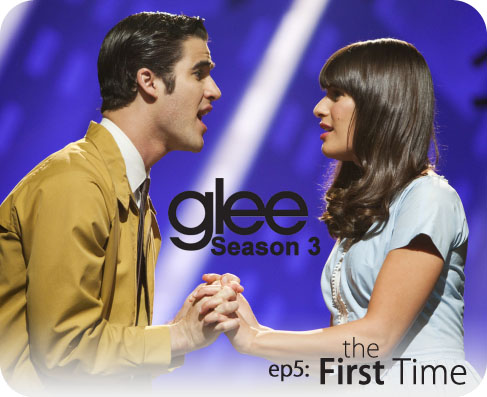 Nov. 20, 2011 Truth is, Hollywood is lying about teen sex. Big time.
Nov. 20, 2011 Truth is, Hollywood is lying about teen sex. Big time.
New CDC research points to numbers that might as well frame Hollywood shows as a public health statistical version of ‘The Lying Game’ since TV consistently paints youth onto a recklessly bleak canvas of stereotyped imagery as impulsively hormonal lusty idiots …when the exact converse is true.
Of those teens that have had sex, they did so using protection. And get this…according to the CDC, less than 43% of teens have ever had sex, meaning teenagers having sex are now in the MINORITY. (NYT/CDC)
Contrary to “realityTV,” teen birth rates are down, based on data collected between ’06-2010. (and that worrisome ’05-’07 bitty bump that blipped up briefly slid back to decline and we are now at the lowest rates ever recorded in the US)
And yet, what are we seeing on teen shows? A gaping chasm between the reality of teens today and the “hot or not” salaciousness of bed-hopping flings, teen moms and baby bumps galore, sexting storylines, and fixation on appearance-based boinkability…
We see consistent media depictions of a 24/7 teen focus on sex. Either overly romanticized with ‘gift giving’ overtones. Or under-handed, manipulative, sex as power tool. Or as every which way sex: Teens-n-teachers. Bi. Gay. Hetero. Hookup. Glee represents a bit of a sea change in “The First Time” episode by adding a new kind of sex… condoms/contraception, careful consideration, committed sex. Go figure.
So what’s really happening? Where’s the reality for teens, and why the vast disparity in perceptions and portrayals?
Even if you factor in CDC research question marks (self-reporting survey style, little knowledge of WHY there’s been a fall off—a strong need to slice the data of ages 15-19 adolescents, since imo, age 15 is much different developmentally than age 19) you’re still talking about 5,300 youth and a gold standard credibility-wise.
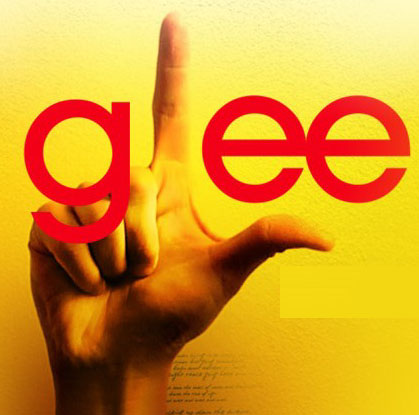 So I’m going to use Glee’s “First Time” episode (episode synopsis here) which aired Nov. 8, 2011, to open a conversation on CDC fact vs fiction, even though it was one of the more responsible sexual health/protection and intimacy examples put forth on prime time TV as of late.
So I’m going to use Glee’s “First Time” episode (episode synopsis here) which aired Nov. 8, 2011, to open a conversation on CDC fact vs fiction, even though it was one of the more responsible sexual health/protection and intimacy examples put forth on prime time TV as of late.
Why choose Glee?
Love it or hate it, Glee’s edgy attempts to uncork conversations on a wide array of subjects from bullying and homophobia to body image, teen pregnancy, over-achievement, homelessness and disabilities have hurled it to the forefront of hallway chatter for youth and adults alike make it an important pop culture conversation opener, as Common Sense Media covered here in “Tips for Talking About Virginity and Sex in Teen Dramas.”
Glee is also a classic romp, a Samuel Taylor Coleridge-style “suspension of disbelief” that tosses plausibility to the moon, weaving weekly dramas spiced with talented pipes, moves, tunes and serving up controversial topics out the wazoo as eyebrower raisers for teaching moments and talking points…
…So on some level Glee is the perfect yin-yang of balancing far-fetched “yougawdabekiddingme” moments with pitch perfect opportunities to cannonball some public health messaging into the plotlines without worrying too much about harmony or discordance.
On the plus side of Glee’s “The First Time” episode, a much-hyped double duo of TWO pivotal lead character couples making the decision to lose their virginity (one pair being gay) —the show succeeded in crafting a strong depiction of emotional intimacy.
They genuinely made an effort to do some knowledge dropping about contraception which earned kudos as well, and clearly used some great show-n-tells of what is and isn’t healthy in approaching dating and loving relationships regardless of age. (see Coach Bieste subplot)
Glee addressed teen sexuality with sensitivity, and overall, used well-developed, creatively executed dialogue/editing sequences enmeshing intimacy, protection, coming of age, and tactfully well-played LGBTQ storylines. BUT…
My over-arching criticism continues to be that the “teen takeaway” message was ultimately “everyone is having sex” when in fact THEY ARE NOT. Period. Exclamation point.
It simply doesn’t mirror the reality of the CDC facts by any stretch of the imagination. (See chart of declining teen sexual activity in light blue bar for 2006-2010 CDC data at 43% and 42%; you wouldn’t know it from TV where it seems like 100% are sexually active)
It falsely perpetuates the “sex as a rite of passage” teen peer pressure crescendo amidst statistical data that reveals it as an unmitigated bald-faced lie. AND…it lobs it into an 8pm prime time slot when impressionable tweens and younger have been known to tune in to the dance fun and fanfare.
This is probably a good time to vehemently state that I’m a strong proponent of comprehensive sex ed, firmly believe knowledge is power, and do NOT believe ‘abstinence alone’ is a responsible sexual health education game plan. (so there’s my editorial disclaimer)
But as much as I feel “just say no” is ineffective policy, I find it incomprenhensibly irksome that when Hollywood is in charge of storytelling, “just say yes” is put forth as a given. Bah. That’s bogus blather that doesn’t jibe with the CDC facts.
It’s wrong-headed to devalue teens collectively by implying they’re somehow “left out” of a nonexistent party.
Why is this “reality deficit” such a deal breaker for me?
As I wrote here in “Influencers, Accountability, and the Global Cost to Youth” there’s an inherent ‘chicken or egg’ question in perpetuating “everyone’s doin it” lies, much like we addressed in the depiction of ‘mean girl’ amplification hitting a 10:1 unreal to real ratio.
Whether it’s constant amplification of bullying on TV or using the media megaphone to fabricate lies about teens having sex when studies and polls shows they aren’t, the misinformation is distorting kids’ reality. (here’s another whopper of a lie from last year, remember this USA Today report that 60% of teen boys are lying about sex?)
Likewise, with media spin amplifying false data, (e.g. teen dating=sex), we’re seeding peer expectations that create pressure-cooker STRESS, needlessly edging toward social norming, and frankly fouling up the works when it come to kids’ socio-emotional health.
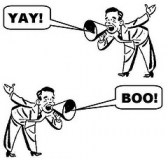 Nationwide, that single, huge destructive lie can have epic trickle down impact.
Nationwide, that single, huge destructive lie can have epic trickle down impact.
And though many may like to use the new CDC stats as an easy “the kids are alright, yay!” exhale, since America’s teen birth rate is now 39 per 1000 the lowest ever, let’s add context:
a.) those numbers haven’t changed ALL that much since the 2002 CDC data
b.) USA’s birth rate is STILL significantly higher than Canada at 14 per 1000, Germany 10/1000 and Italy 7/1000
c.) there’s plenty of work to do in sex ed to get those numbers down further
d.) AND while the CDC study shows sex/birth rate in decline…STDs are on the rise impacting teens particularly high, with chlamydia particularly worrisome. (“young people represent 25% percent of the sexually experienced US population, but account for nearly half of new STDs”)
Let me be very clear. I’m not saying don’t ever depict teen sex, that would be ostrich head in the sand, hum with hands over the ears absurdity.
I’m saying don’t misrepresent the data into misinformation creating a false push and perception that ‘everyone’s doin’ it’ when they’re NOT.
As a former writer/producer by trade it would’ve been easy to depict CDC factual accuracy and still be true to the story arch. A quick montage of Rachel in classic over-achiever, anal retentive, insecure at heart mode could’ve cut to her polling McKinley students en masse to reveal those minority numbers.
Instead we got the lead characters in a gal pal circle of chums putting forth a ‘100% had sex’ benchmark, not remotely depicting reality in the real world, NOR in the TV world…since this is supposed to be the ‘outcast’ group at the high school. Sure doesn’t sound like the ‘island of misfit toys’ framing to me.
There were plenty of ‘whoa, did they really just say that?’ sidewinders as well as several positive cues in terms of how they handled facts and youth behaviors from a ‘media as super peer’ perspective too…(a ‘mercy’ moment was hardly the right positioning of the coupling of Rachel and Finn, sex as solace is not a great message)
There were some predictably cheesy lines (“I’m going to give you something no one else will get?” ugh) and cautionary ones, “just wait, cause look what happened to me” (from Quinn, the pregnant cheerleader who gave her baby up for adoption and is now scheming to get her back).
And confusingly, there was a garbled line from Brittany about non-consensual sex that I hunted down online, “I lost my virginity at cheerleading camp, he just climbed into my tent – alien invasion” (which is not something you just toss out there casually to hang in the air like it’s nothing)
There was also the painfully caustic but ultimately accurate for many ‘first times’ snark from Santana objectifying Finn as “terrible in bed” and rating his performance as being “smothered by a sweaty sack of potatoes drowned in body spray.” And Tina weighed in with the token sex positive experience, responsible condom use message and idyllic ‘absolutely perfect’ and ‘amazing’ verbiage. Mercedes was absent altogether for whatever reason (perhaps a nod to cushion the data mismatch–alluding to “you’re not hearing from EVERYone?” )
So again, yes, the girls’ experiences were a balanced sampling of ‘first times,’ but the show itself was not remotely reflective of the CDC numbers, which tanks credibility and skews the whole shebang.
But it’s just “entertainment”…“Sex sells”…It’s a ratings booster…
Hmn. Even THAT premise turns out to be a lie.
I followed the money trail of usual media and marketing monetization and got a kick in the evidentiary teeth.
“The First Time” ratings for the Glee episode pulled the LOWEST numbers in the entire season 3 lineupAND was lower than all of season 2 as well. They garnered a “mere” 6.91M viewers. (still a massive amount of eyeballs that could’ve received some health edu messaging and alignment closer to the facts)
This week, when I expected to see the new developments recapped in their ritual flashback montage, “recently on Glee…” it was noticeably absent. Gone. Poof. Nada. What gives? It was disarming to have that elephant in the living room vanish after all the extensive hype…Did advertisers bail? Did sex NOT ‘sell?’ Hmn. I’m sure we’ll find out tomorrow…
Moreover, what DID sell? Where did the ratings spike?
Get this…The two season openers, The Purple Piano Project (9.21) all about hope, humanity, and social good to ‘pay it forward’ to others less fortunate. The second highest? I Am Unicorn (8.60) about Brittany’s innocent belief system of ‘be true to yourself’ indie magic.
Hmn..Maybe Hollywood should consider audiences might be up for some positive, reality-based messaging that reflects youth ideals?
Check out these numbers about the compassion boom from our friends at KooDooZ.com touting “Generation Z” as the new philanthropists.
(…And if 1 out of every 4 Americans is under the age of 18 and this is their passion, someone in Hollywood needs to hop on that do-good train and call me to blow the whistle. YES, I have several shows to pitch…cash cows. Truly. Let’s moooooove on it!) Sorry, I digress. Back to Glee’s CDC data distortion…
WHY would Hollywood bury the fact that the majority of teens are NOT having sex, and hide the responsible behavior of safe sexual health for those teens who ARE having sex? Why ditch good news?
Hollywood is working at cross purposes when they could be embracing mass media as an opportunity to educate, inform, tell the truth, shift the course, modify or enhance public health messaging…and do so in a fun, fabulous way.
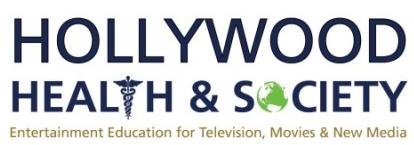 Shows with mass audience like Glee have vast opportunities to discern the huge difference between sex, sexuality, and sexualization for teens, which could help immensely, as it’s now morphed into a mess of a moshpit.
Shows with mass audience like Glee have vast opportunities to discern the huge difference between sex, sexuality, and sexualization for teens, which could help immensely, as it’s now morphed into a mess of a moshpit.
Glee could also challenge themselves by taking all those “so sexy so soon/looks are everything” cues that have given rise to eating disorders in children (now unbelievably trumping childhood diabetes stats) and do a little health literacy for the masses.
Sigh. Where’s Norman Lear when I need him?
There’s powerful positive potential here to right some public health wrongs and turn this tanker around.
As I wrote in “Kids Prime Time TV/Hollywood Health Cues Ingested For Better or For Worse,” whether it’s mental or physical behaviors lobbed into the media mix or embedding sexual health for safety into plotlines, there have been some staggeringly positive results…
(Example: In this Kaiser Family Foundation case study (36pp case study pdf) they conducted a unique experiment placing health content in a Grey’s Anatomy episode which quadrupled awareness and absorption of a key HIV/AIDS health message from the show, to the tune of over eight million people)
From a health literacy standpoint, I wish Glee would’ve also addressed the STD data on the CDC report card, which might have implications as to WHY intercourse has plummeted but STDs/oral sex are high risk for teens with 1 in 4 teens contracting an STD) . (again, the protection issue confounds) So I think they missed some plotline potential there.
Likewise, some of the very REAL life fallout from the devolved objectification and sexualization taking place in media is teen sexuality itself.
 Glee tried to address it a bit, with the detached, disembodied ‘let’s just get this done’ checklist type of peer pressure angst and body shame weaved into the Glee episode with Rachel and Blaine responding to peer character/musical director Artie in the awkward role of sexual sage.
Glee tried to address it a bit, with the detached, disembodied ‘let’s just get this done’ checklist type of peer pressure angst and body shame weaved into the Glee episode with Rachel and Blaine responding to peer character/musical director Artie in the awkward role of sexual sage.
By nudging fellow actors to ‘experience life’ before opening night in order to be able to ‘act better,’ (because after all, what did they know being virgins cast in the passionate ‘Tonight’ West Side Story number) it felt simultaneously wrong-headed yet accurate in its storytelling glimpse of today’s peer pressure.
The APA report on early sexualization addresses how this kind of external pressure of disconnection without regard to one’s own internal needs and psyche can foul up kids’ healthy sense of sexuality. Thankfully, the plot turn with requisite guilt of using someone and recognition of lousy motives redeemed itself later in the show to depict a much healthier point of view.
Glee has straddled a fine line being both part of the problem and at times, part of the solution.
Objectification is a huge issue directly impacting and causing harm to teen sexuality amplified by media messaging in what’s becoming an increasingly crass, coarse culture. (Glee has definitely done its share of contributing to the problem there, especially the rogue branding of the stars as sexualized schoolgirl pin-ups in GQ print magazines which now pop up like porn in any visual browser Glee search)
I’d like to see some teen shows start using their power to ‘go there’ to right some wrongs, instead of taking special “teen dating events” like winter formal and turning them into Hollywood hoochie-mama bedfest dramarama.
Any idea what today’s teen endures in REAL life when shows alluding to ‘special nights’ air and serve up Hollywood vapid values?
Try scanning a few thousand Facebook walls, Formspring posts, and photo comments to see the ancillary fallout after homecoming. It’s enlightening.
From proms to “partying” there’s plenty of evidence of the hijacking of intimacy in teen dating, when you stumble upon some of the crude ‘so did you ‘f* yet?’ objectification inserted into social media chatter like locker room talk.
Or a photo comment, “just do the nasty and get it over with,” on a sweet 16 couple dressed to the nines, looking lovingly at each other.
Sure doesn’t do much for healthy teen sexuality to be treated like a belt notch or a piece of meat.
You can almost feel the virtual cringe in some of the replies, “get off my wall Johnny” or “ewww, lol” or sticking the tongue out emoticons
or snarky retorts with bravado laced with return fire innuendo in oneupsmanship style.
Some other sexual health factoids that could easily thread through plotlines to convey health literacy in a more accurate media context:
According to violence against women stats from KnowMoreSayMore.org, up to 2/3 of adolescents who become pregnant were sexually or physically abused some time in their lives. Further stats from NYU’s National Sexual Violence on College Campuses will make you shudder. So let’s do some work connecting the dots there…you can’t say that doesn’t hold ‘drama’ potential with an opportunity to impart some cyclebreaking and change making too. Not to mention the escalation of teen dating violence in general…
Misogynistic rap videos and media that objectifies, reinforce rape culture attitudes and human beings as objects to be hunted, stalked, conquered or relationships ‘stamped with expiration dates’ (ugh, that phrase turns my stomach every time I hear it) are not doing us any favors here. (don’t get me started on the Twilight saga)
Seems shows with mass audience like Glee who love to dance on the edge of controversy might want to help educate and empower to reverse the course of harm taking place in teen sexuality, where kids become blasé and virginity is tossed like a used tissue.
Glee already tried to reverse the body image obsessions in their show about being true to yourself and owning your insecurities as part of your persona, but as I said, now that eating disorders among children outrank diabetes, it’s pretty clear we’re going to need more than Glee writers in this bullpen.
In a channel of influence tuned to the same frequency of picture perfect ingénues across all airwaves, depression in kids showing up earlier in childhood, and US youth mental health at a record low (Michele Borba) there’s massive health literacy work we need to do here to help pull up on the rudder of this media saturation. (from ABCFamily/Disney to CW/MTV Snooki-fication)
How can we be responsible with TV/media storytelling to reach but not preach? Stay fresh, fun and watchable? I still say we can start by seeding TRUTH over lies. There are plenty of plot points there…
Let’s reflect positive progress, in every aspect of the media we consume. Let’s give youth credit where credit is due. And let’s look at creating media that impacts adolescents and public health based on function by design at the onset, not at the mop up.
We simply need to get it right… ‘the first time.’
p.s. I’ll be tuning in to see ‘next steps’ in plotline development…meanwhile, sound off—Is expecting a remote semblance of the truth an artificial benchmark for a drama/entertainment show? Your thoughts? Ideas? What would you say to producers if given carte blanche to guide the direction on any network, any show? Which show would you choose?
Related Posts on Shaping Youth
Tips for Handling A Real Life Sue Sylvester on GLEE (bullying)
Not GLEEful: Spark Change: GQ Glee Cast/Sexualization Summit
HIV/AIDS Awareness Day: Black Teens, Rock the Red Pump Project
Teen Health Dialog: Coming of Age in a Sex Saturated Culture
So Sexy So Soon: Interview Chat with Co-Author Jean Kilbourne
Sexy Broccoli, Saucy 6yr olds & Why SexEd is a Must! Pt3
Top Queries From Teens About Sex/Adult Responses Pt2
Teens & Public Health Converge: SexTech Pt 1
Kids Prime Time TV Health Cues Ingested (For Better or For Worse)
Influencers, Accountability & the Global Cost to Youth
Text Monster: Teen Tips On Digital Dating Obsessions
Sex::Tech Top 10 Teen Sex Ed/Safety Videos (By Kids, For Kids)
Interview w/Amy Jussel on The Girl Revolution (sex ed/media)
Interview w/Amy Jussel on The Girl Revolution (sex ed/media Pt2)
Depravity Gone Viral, A Thin Line For Humanity
Man Down? Girl Up, Rihanna. Own Your Influence
HIV/AIDS: Tapestries of Hope: See A Movie, Make A Difference
Related Resources for Youth
ISIS-Inc.org (Internet Sexuality Information Services)
- American Sexuality / NSRC
- Advocates for Youth
- Birds and the Bees Project
- KidsHealth.org/Teen Sexual Health
- The National Campaign
- NSRC-National Sexuality Resource Center
- Object Adjective
- RH Reality Check
- Scarleteen.com (Sex Ed for the real world)
- Sex, Etc. (By Teens for Teens)
- Siecus (Sexuality Info Ed Council of U.S.)
- Stay Teen.org
- Teensource
- Teenwire
- I Wanna Know.org For Teens (Am. Social Health Assoc.)
- My Sistahs.org
More Resources
New CDC Oct 2011 Report on Teen Sexual Health
Teen Sexual Behavior (The Media Project/Advocates for Youth)
CDC Oct 2011 More Teen Males Using Condoms
First Times, Glee Style: Live-Blogging by Adolescent Pregnancy Prevention Campaign
Teenagers Having Sex Now In Minority (NYT)
STD Trends in the US, 2010 CDC data
Efficacy of a Theory-Based Abstinence Only Intervention Over 24 mos
Abstinence Only Programs Might Work Study Says
Abstinence Only SexEd Statistics: Final Nail in the Coffin
Amplify Your Voice (Youth-Driven/Sexual Health Activism)
Project: Enterainment Industry Resources on Sexual Health
Managing the Media Monster (Influence of Media)
The Kinsey Institute: FAQs on Teen Sexual Activity
TV/Internet: Advocates for Youth Factsheet-Sexual Health Info
Visual Credits: Media Megaphone/Social Media Paige.wordpress.com, all Glee on Fox imagery from their site
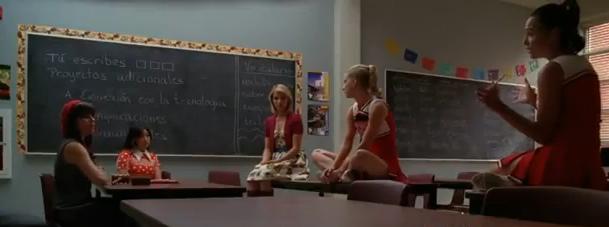








Amy, Your post hits so many sonorous notes I hardly know where to start. Sex is so intrinsically interesting both to those who are having it and those who are not that I’m sure the Glee bullpen felt they could hardly go wrong writing a juicy story that caters to old stereotypes about what “everbody” is said to want.
What’s confusing is that, as you point out and anyone who’s watched a few episodes can plainly attest, the show DOES seem to have a pretty distinct conscience and dare I say social agenda on so many other issues. Even in the episode you feature I saw a clear and thoughtful attempt to link emotional intimacy and physical intimacy, but without pointing out that emotional intimacy and physical intimacy have at best a coincidental, but not necessary correlation. That the second needs the first is clear enough, but that the first forces the second is just absurd.
I like that you point to details from the newish CDC study that show the rate of sexual activity among our young people seems to be down. I am sure this could have been worked into the storyline fairly easily, so I’m disappointed that the Glee people seemed to get this so wrong in this episode.
I just hope the minor ratings spanking the show got in this instance can be seen from a wide-angle lens, allowing our kids the freedom to see their own choices as wider and richer than what’s portrayed by late-twenties actors and who-knows-how-old writing of the Glee writers. Good work there Amy.. comprehensive and interesting.
–steve
Remove this smut from television! My children will never watch this show and I will block any other programing such as Glee!
I didn’t respond to this earlier, as I think it’s your right to voice your opinion of course, but as a fan of Glee for media literacy value and frankly, unabashed talent in singing/dancing/performance unlike any other it seemed too obvious to reiterate the obvious ‘turn off’ button…
More importantly, I think ambient media (which CANNOT be turned off) is paradoxically the greater debate point to YOUR comment (e.g. exposure to media like billboards/transit ads etc as I’ve written about here in the neg>>> https://shapingyouth.org/?p=335 and here in a positive/pushback format for consumer advocacy https://shapingyouth.org/?p=16112 )
My point of the Glee piece was more about the FACTUAL misrepresentation of teen sex stats in media and the confusing/stressful/needless behavioral angst stemming from false framing out of context, creating a ‘peer pressure’ dynamic that does NOT need to be there. (the ‘chicken vs egg’ argument)
Wow, you have REALLY done an extensive look at this topic. Hollywood notoriously distorts ALL reality to THEIR agenda. Just look at most Oliver Stone films. Or, in a humorous fashion, look at the fantasy lives in Nancy Meyer’s movies!
As for GLEE, there’s no doubt it reflects the projection of what the creator would like the world/America to look like vs any reality. Sadly, kids see it and may think it is reality.
For me it was so ironic that last night’s double episodes largely didn’t have the usual preaching of alternative lifestyles AS THE NORM and instead focused on their music and competition. Made for a more watchable couple of hours though I personally didn’t care for most of the music choices. AND, Unique or whatever that character’s name is was the poster child for alternative lifestyle but at least not overly featured…